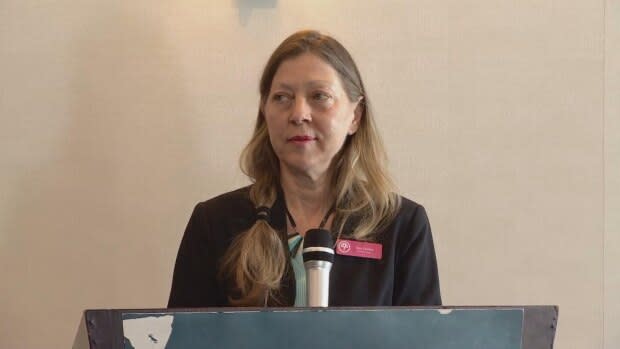COVID-19 crisis underscores dire need for transitional housing, advocates say
There is a growing need for transitional housing that can provide a safe yet isolated environment for street teens and victims of domestic abuse — unique populations that don't have homes but aren't usually considered homeless.
"It's a really complex situation that's been made even more complex," Margo Long, executive director of the Youth Empowerment and Support Services (YESS), told CBC Radio's Edmonton AM on Friday.
"We've become an essential service to provide a place of safety for these young people. And the complexity for us is figuring out how to keep the ones that are COVID-negative safe, how to keep our staff safe and how to take care of the ones that do get sick."
YESS staff have carved out an isolation space at the 24-bed overnight shelter, allowing them to temporarily separate youth who are exhibiting flu-like symptoms.
They're then taken to the Expo Centre, which has been set up to accommodate Edmonton's larger adult homeless population, to be tested and stay overnight in the designated medical area, Long said.
It's hardly an ideal situation for teens, many of whom have experienced some kind of trauma that has caused them to be out on the street, said Long.
'Safe homes'
"What we need right now is more transitional housing. We have kids that are 15 years old. They're not ready to be in a hotel or an apartment by themselves. But they're certainly OK to be in a group home situation, where we can have bedrooms, we can have isolated floors and bathrooms [where they can] wait their 14 days," she said.
"That sounds great — but then I need a couple of apartment buildings and about 20 more staff."
The executive director at WIN House, a shelter for women and children fleeing domestic violence, is also considering the need for separate apartment or kitchen suites as coronavirus continues to spread.

The organization has 71 beds in three different shelters, and the accommodations are already set up to offer women and families the ability to self-isolate, Tess Gordey told CBC News on Friday.
"But if and when a family is testing positive, or if social isolation in their rooms is getting to be very difficult for any number of reasons, we are exploring options for safe homes outside of the shelter, perhaps apartments or kitchenettes," said Gordey.
Fundraising plans disrupted
Both organizations also share another problem: a looming drop in revenues due to the cancellation of key fundraising events and the expected loss in donations from corporate and community partners.
On Friday, WIN House launched a COVID-19 Relief Fund, seeking donations to help ensure its programming can continue.
"Of course we can't have that golf tournament or that casino now," Gordey said. "The whole idea of our COVID-19 relief fund campaign is specifically to top up those dollars so we can meet our budget and continue to keep the number of beds open that we have."
The annual YESS gala, which had been scheduled for mid-April, has been cancelled but Long said the organization is continuing with its raffle. If all the raffle tickets are sold, she said, the organization should clear almost as much as it would have from the gala.
Long said the services YESS offers are more critical than ever as the impact of coronavirus begins hitting the youth.
"For some, they've been operating in flight, flight or freeze for most of their life," she said, "and this is another crisis."

